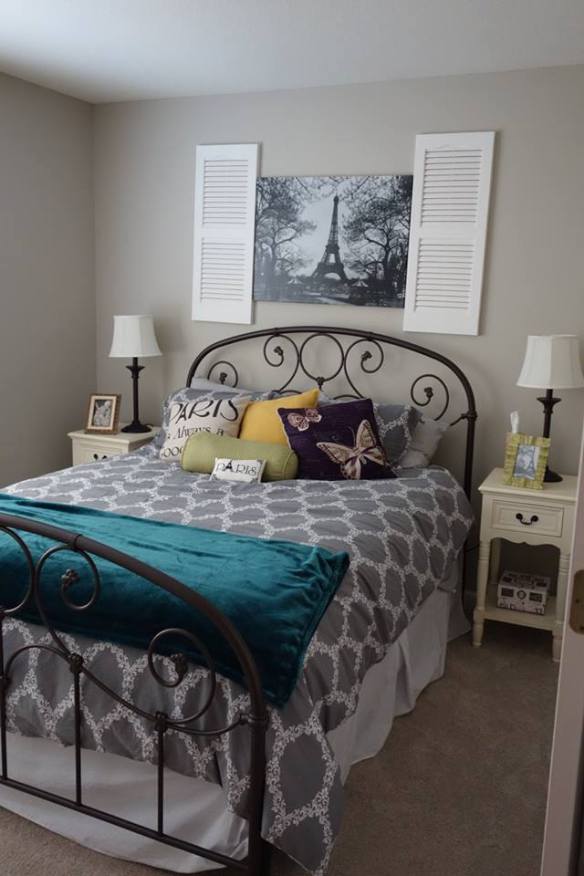Is anyone besides me beyond annoyed by the whole “Americans suck as parents” trend? From Pamela Drukerman’s Bringing Up Bébé to Tiger Mom to British nannys reading us the riot act, we seem to have the whole world judging our parenting style as completely ineffective. Worse, we’re labeling ourselves as inept: we’re sure that somehow, some way, everyone else knows something we don’t, whether it be some variation of the “kids/parents these days/in my day” rant (which has gone on for generations) or the “French/Chinese/Tribal Africans/name any country do it so much better” trend.
It’s clear to anyone who actually lives in the U.S. that there is no one-size-fits-all parenting strategy here. Peruse the shelves of books on parenting in any bookstore and it’s apparent that we can’t agree on much of anything when it comes to how to best raise a child in this country. Beginning with how best to bring the child into the world: you’d think the way a child exits the mother’s womb is the single most important aspect of being a parent, the way some people rail on about it. The fact that we even have shelves of books on how to parent speaks volumes for our combined interest, opinions, and insecurities. Still, I think there are some approaches that while not completely universal (is anything?) are still identifiable as “American.”
Here’s where I think Americans are getting it right:
1. We’re affectionate and loving with our kids. We hug our kids, kiss them, rub their backs, let them drape themselves on us. We give them piggy back rides. We tickle them. We let them pretend they are tickling us. We often tell our kids we love them, we compliment them, we encourage them.
2. We pass on optimism, positive outlooks, and a you-can-do-anything-you-set-your-mind-to attitude. Americans: we’re a pretty sunny bunch. We smile freely. We’re chatty even if we don’t know you. And we tend to see the world as a place full of wonderful possibilities, especially if you work hard. We pass that attitude on to our kids.
3. We encourage sports and physical activity. We love our sports. We like to watch them, we like to play them, we like to talk about them. And while there’s no denying we have an issue with obesity in this country, we also have millions of citizens who make sports, staying in shape, and playing a part of their daily lives, for all their lives. This starts early: soccer programs for 2-year-olds leads to league sports for elementary aged kids, and sports associated with schools usually starting in junior high. Our kids learn valuable lessons about physical fitness, healthy lifestyles, and teamwork from the start.
4. We know school is important, but that it shouldn’t rule our kids’ every waking moment. We let them experience balance in life by giving them opportunities to pursue other interests: musical, athletic, social; we believe happiness in life comes not only from accomplishing, but also from relationships, balance, and exploration of the world. Still, we get involved in our kid’s education, too. We volunteer in the schools. We keep tabs on school board and curriculum decisions. We have relationships with our children’s teachers. We, like many other cultures, keep close tabs on how our kids are doing in school and what they are up to outside of school. Involvement in extracurriculars is often portrayed as a frantic attempt to make sure our child is good at everything. But for many of us, it’s an attempt to help our child find the things they love to do, and then keep doing them.
5. We get emotional. Our kids see a spectrum of human emotions in us. We don’t tend to hold our kids at arms’ length, or try to be something other than ourselves, our very human selves, around them. We keep it real. Our kids see that we aren’t perfect. Our kids see us say we’re sorry. Yes, we’re still in charge, but we don’t pretend we’re infallible.
6. We put our kids through college. One of my biggest gripes about my country is that higher education is ridiculously expensive, and therefore not accessible for far too many people. Faced with this reality, we try to rent or buy homes in the best school districts to give our kids the best chance at getting a good education and therefore being accepted into universities. Parents who are able start college savings accounts for their children early, sometimes when the kids are still in the womb. I’ve met parents who have extended their working years, took on extra hours or even a weekend job to ensure their kids have a college education. It’s no picnic for the parents in this country, but we want our kids to have a bright future, and we’re willing to sacrifice to make sure they have opportunities that some of us did not.
7. We appreciate our kids as individuals and we support their dreams. We try to get to know our kids and understand them as people, not as beings we can force into a mold of our choosing. We try to respect them as individuals, and we want to help them find the right path in life – the one that is best for them, not for us.
We cheer them on at their swim meets and soccer games. When they tell us they want to be a rock star, we hand them a plastic microphone and let them turn our garage into their studio. Sure, there’s the out-of-control soccer parent here and there whose kid is the most talented player in history and everyone around needs to recognize this as fact, or the cheerleader parent who enthusiastically applauds every scribble on paper and every awkward cartwheel, but these are exceptions rather than rules.
8. We play with our kids. We have a plethora of Mommy and Me Classes. Sometimes this is criticized as one more way we go overboard, but, for many of us, it’s an opportunity to have fun with our kids and to meet other parents. We dance like fools because it makes our little ones giggle. We play with them on the playground because we cherish that time with them. We watch cartoons because it’s fun to see them through our kids’ eyes. We “vroom vroom” toy cars around the room, honk when we pass through tunnels, and play Memory and Candy Land because we want to have fun relationships with our sons and daughters. Sure, there are “helicopter parents” who go overboard, but most of us genuinely enjoy our kids’ company and want to enjoy it while they still think we’re cool enough to hang out with.
9. We volunteer. We encourage empathy and kindness toward others. Growing up, my family and I helped build homes with Habitat for Humanity for people without the means to buy their own home. We made meals for the homeless. We played Santa Claus for low income families with children – gathering, buying, and wrapping gifts, as well as preparing a full Christmas dinner. The tradition of helping others happens in families, through churches, through schools. A local high school football team volunteers in community projects each year, doing things like helping flood victims or working at a local Children’s Home. Through involving our kids in volunteer work, we hope to help our kids learn to be kind to others and to help to make this world a better place.
10. Our kids are participating members of the family. Kids help with household duties and chores. They get to talk, share their ideas, their feelings, express their frustrations. We’re in it together, after all, and kids learn to contribute, to talk, to compromise, to bargain, coerce…. yeah, I’m not saying we’re perfect. But we view our kids as individuals that deserve a level of respect while we still attempt to teach them values, morals, and how to be good people. We take them places with us. Out to eat. On vacations. On adventures around the world. On errands. Camping. It makes it harder on us, sure. But for us, family means we’re a unit that does stuff together.
We are all products of our cultures, our socioeconomic circumstances, our own upbringings. Further – what works great in one situation may not be applicable under different circumstances. My own view is surely biased by my own experiences, the people I know, the areas of the country I’ve lived in. If there’s anything close to a universal in parenting, I’d say it’s that the vast majority of parents worldwide love their kids and want what’s best for them. As I said before in my Open Letter To Moms post, we could all take our foot off the judgement pedal and chill out a little, learn from each other, and focus on loving and enjoying this world’s next generation.
Parenting, as a verb, is new to our lexicon. We’re killing ourselves with anguish over it. We’re making it so complicated. Too often we approach it as a problem to be dealt with. Parents in the U.S. are too often stressed and unhappy. Mostly, we’re doing it to ourselves. Let’s stop the “we suck” train. Let’s recognize that while no one has it all figured out, we’re not train wrecks, either. We’re doing a lot of things just fine.
Addendum: This blog post was inspired by a question posed by Olga at European Mama on American parenting. She’s written a great post in support of American parents, and you can find it here.



















